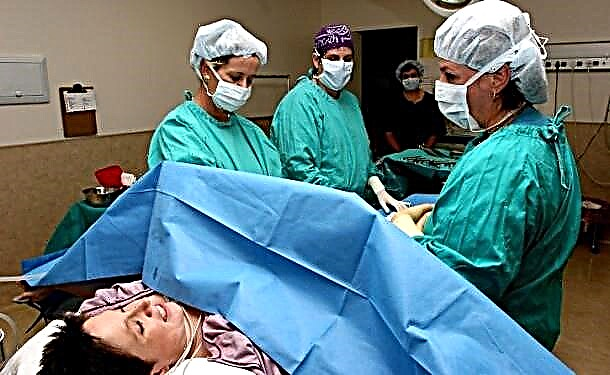
When a woman is carrying a baby, her body is exposed to significant stress. The hormonal background and blood flow change, the uterus increases in size and presses on other organs. This often provokes various problems with the digestive system, which are manifested by constipation, heartburn, nausea and other uncomfortable sensations. To alleviate the condition, the doctor may prescribe a drug that is safe for pregnant women, for example, "Hofitol".
If you ask why such pills are prescribed during pregnancy, you can find out that their reception is in demand from toxicosis, edema, bile stagnation and many other problems. However, it is not worth taking them without the appointment of a medical professional. If “Hofitol” was prescribed by a doctor to the future mother, you need to study the instructions for use in more detail and see the review of reviews.

Features of the drug
Hofitol is found in pharmacies in three dosage forms.
- The most requested over-the-counter options are round convex brown tablets, which sell 60 and 180 pieces per pack.
- No less popular and solution, intended for oral administration. It is a brown, opaque liquid with a yellowish precipitate, which is dispensed without a prescription in glass bottles of 120 ml.
- The third variant of the drug is injectable form... This "Hofitol" is available in 5 ml ampoules and is sold in 5 or 12 ampoules per pack. The solution inside the ampoule is transparent and has a yellow color, which can be both dark and barely noticeable. To buy such a drug, you need a prescription from a doctor.
Each of the forms of the drug contains an extract from the leaves of the artichoke, which is the active substance of "Hofitol". 100 ml of liquid for internal use contains 20 g of extract (it is aqueous), and one tablet contains 200 mg of dry extract.
The dosage of the purified extract from artichoke leaves in one ampoule of solution for injection is 100 mg.
The inactive components differ in different forms of the drug. The liquid "Hofitol", which is taken internally, contains parabens, ethyl alcohol, orange flavor, glycerin and water. The only auxiliary ingredient of the injection solution is sterile water. In the core of the tablets, the plant extract is combined with talc, magnesium trisilicate, corn starch and magnesium stearate, and the hard "Hofitol" shell is made of calcium carbonate, sucrose, carnauba wax and a number of other substances.

Operating principle
The effect of "Hofitol" is determined by the active compounds found in the leaves of the artichoke. Such vegetable raw materials contain many vitamins (among them ascorbic acid, thiamine and riboflavin can be distinguished), carotene, inulin, cynarin and other substances. They are capable of:
- stimulate the secretion and outflow of bile;
- normalize metabolic processes, including the metabolism of cholesterol and ammonia;
- protect liver cells from damaging factors;
- accelerate the recovery of hepatocytes after a negative impact;
- increase urine output, which improves kidney function;
- to activate the excretion of nitrates, heavy metals and other harmful substances.

Is it allowed during pregnancy?
As already noted, "Hofitol" is considered safe for the fetus, therefore, this drug can be used at any gestation period. Such a medicine is prescribed even in the 1st trimester, if there are indications for this, and the doctor approved the treatment.
In the second trimester, the medication is often used for exacerbations of chronic diseases.
Since the ingredients of the drug do not affect the state of the uterus and labor activity, "Hofitol" is also safely prescribed in the 3rd trimester if there are indications for treatment with such a remedy. At the same time, independent use of the solution and tablets is not recommended.

When is it prescribed for expectant mothers?
The choleretic effect of the drug is called one of the main, therefore, among the main indications for the use of "Hofitol" there are biliary dyskinesia and chronic cholecystitis without the formation of gallstones... The medication is prescribed in case of deterioration in the function of the biliary system, which results in stagnation of bile, and the risk of inflammation increases.
Due to the hepatoprotective effect, the agent is in demand for various liver lesions with a chronic course. "Hofitol" is used for hepatitis caused by a viral infection, toxic effects and other reasons. It is often prescribed for kidney disease, the consequence of which is a violation of the excretory function of a moderate or mild degree.

The reason to prescribe "Hofitol" may be intoxication, which has developed as a result of an infectious disease or poisoning. The medication can also be included in the complex of treatment for skin problems, for example, psoriasis, acne or atopic dermatitis.
Pregnant women "Hofitol" are usually prescribed with early toxicosis, cholestasis, fetoplacental insufficiency, oligohydramnios, late gestosis and the risk of its development... The drug copes well with various dyspeptic symptoms, eliminates belching, nausea, constipation, bloating and other uncomfortable sensations from the gastrointestinal tract.

Contraindications
“Hofitol” will not benefit all expectant mothers. Despite the plant-based, this medicine has some serious contraindications. It cannot be used:
- with cholecystitis or inflammation of the liver, if the disease is in the acute phase;
- if stones are found in the bile ducts or inside the gallbladder, as well as if their presence is suspected;
- with severe hepatic or renal failure;
- in case of hypersensitivity to any of the components of "Hofitol".
Since there is ethanol in the oral solution, the use of this form in pregnant women is limited, especially in the early stages and in diseases of the brain. Tableted "Hofitol" is not prescribed for such problems with the absorption of carbohydrates as isomaltase deficiency, fructose intolerance, glucose-galactose malabsorption and sucrose deficiency.

Side effects
"Hofitol" can affect the consistency of the patient's feces, making them more fluid. This side effect is often associated with high doses of medication or long-term treatment. Since the basis of the drug is a medicinal plant, an allergic reaction is possible to "Hofitol", for example, in the form of urticaria or itching. In this case, the further use of the tablets or solution has to be abandoned, choosing a suitable analogue with the doctor.

Instructions for use
If a solution is used, it should be stirred before use by slightly shaking the medicine in the bottle, since the plant material will settle to the bottom during storage. Tablet "Hofitol" is swallowed with water. Since the dense shell of the drug is designed to protect the active substances, you should not bite into the tablets.

Both versions of the drug are drunk before meals, specifying the frequency of admission and a single dosage with a doctor. The most common scheme of use is three times a day. How long to drink "Hofitol" is also important to find out from your doctor, since the duration of the course is directly related to the reason why the drug was prescribed to the expectant mother. Some women are prescribed medication for 1-2 weeks, others - for a month or even longer.
The injection form "Hofitol" is rarely used. Usually, injections are given to women who are hospitalized. The drug can be injected both into a vein (always slowly) and intramuscularly.
A single dose is selected by a specialist taking into account body weight. The injection is usually performed once a day, and the duration of such treatment is up to 15 days.

Reviews
Women who have been prescribed Hofitol during pregnancy call this medicine safe and effective. According to them, the medication helped to eliminate unpleasant symptoms, normalized appetite, and improved health. The main advantages of the product are called the plant base and harmlessness to the fetus.
The advantages of the liquid form include ease of administration and ease of dispensing, and the tablets are praised for their affordable price, small size and sweet shell. Among the disadvantages of the solution are the higher cost, the presence of ethyl alcohol in the composition and the bitter taste. Side effects while taking "Hofitol" are rarely noted.

Analogs
Depending on the indications, the doctor may prescribe different medicines instead of Hofitol.
- Allohol. Such tablets based on dried bile, garlic extract, activated carbon and nettle extract have a choleretic effect, reduce inflammation, bind toxins and improve digestion. The drug is used for biliary dyskinesia, chronic hepatitis, cholecystitis and other diseases. Expectant mothers are discharged from it at any stage of pregnancy, if there are indications for this.

- Flamin. For the manufacture of such tablets, immortelle is used, which is rich in sterols, flavonoids, essential oils and other active compounds. The drug has an effect on the formation of bile and its secretion, and also has an antispasmodic effect. The tool can be used during pregnancy, but only under the supervision of a specialist.

- "Kanefron N". Such drops and tablets act due to extracts from lovage, rosemary and centaury. They stimulate the excretion of urine, relieve spasms in the organs of the urinary system and help eliminate inflammation. This allows the use of "Kanefron N" instead of "Hofitol" for cystitis, edema, chronic kidney disease. Expectant mothers are prescribed medication both in the early and late stages.

- Dipyridamole. These tablets are able to replace "Hofitol" in case of circulatory disorders and placental insufficiency, since their active substance improves blood flow, strengthens the walls of blood vessels, prevents thrombosis, activates metabolic processes and enhances immune defense. The drug can be administered at any stage of pregnancy. Its analogue is "Curantil".

About "Hofitol" in the form of tablets, see below.



